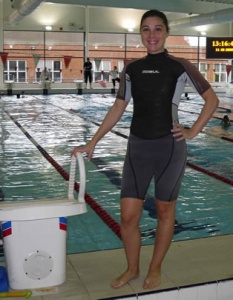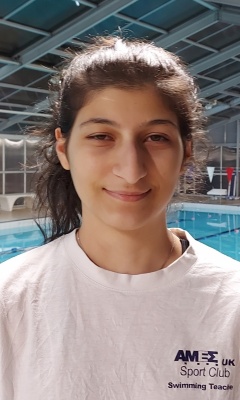UK Sport Psychology
A Short Introduction to Sport Psychology

The first concept you must get crystal clear in your mind is the difference between Psychology and Psychiatry. These are two sciences that are very, very different and are often misunderstood and confused. Make sure that you don’t confuse the two.
Please read on. Once I’ve outlined the difference between these two fields I’ll describe what I do in the field of Sport and Exercise Psychology.
What is Psychiatry?
What is Psychology?
What is Sport and Exercise Psychology?
Sport Psychology and you
Fundamentally there are three basic factors that influence our sporting ability namely physical fitness, technical skills and mental skills. Although many sports performers will spend a lot of their time developing their fitness and technical skills, the mental side of the athletes’ make up is often totally neglected or at best, not paid enough attention to. It is an often overlooked fact that it is amazing how good we can be at allowing our minds to work against us. For example even before we start an activity, we can often find a number of reasons for failure – inner doubt, bad weather, lack of practice, tiredness, anxiety, stress – and thus find ourselves performing ‘up to’ (or more likely ‘down to’) our now pre-conceived and predefined expectations.
Essentially, we can find ourselves performing badly because we are not using our minds in a positive way. As a result, we can form limiting beliefs about ourselves and our abilities which leave us expecting failure rather than success and hence we don’t perform as well as we might.
By changing how we use our minds when we approach a sporting activity – by enhancing self-belief, dealing with how we respond to making errors, setting goals and maintaining a positive attitude – it is possible to make a significant and more importantly repeatable impact on our performance levels.
From professional athletes to keen amateurs, Sport Psychologists can help their clients improve their ability and enjoyment of their sport both quickly and effectively.
So how do Sport Psychologists make the difference?
Sport and Exercise Psychologists (to give them their correct title just once in this introduction piece) concentrate on personal well-being, performance capacity, mental health and the cohesive development of the whole personality. A sport psychologist is the independent person who facilitates in a performance environment which includes both an athlete’s training programme together with his/her personal life and lifestyle, thus enabling them to focus as near to 100% as possible effectively on competition, training schedules and on day to day living like a normal fully balanced human being. In parallel, a sport psychologists’ work is to also build up the confidence, self-esteem and help the individual athlete overcome their fears and barriers in their sport and every day life.
Here is a simple, really basic example of a Sport Psychology method. For every person striving to improve performance it is essential to have goals established and documented. Ask yourself what am I trying to achieve? How am I progressing? Then write it down. It is a key fact that one of the main reasons for dropping an exercise programme is not feeling that results are being achieved.
Your goals need to fit the following SMART criteria:
- S-pecific (to lose 3Kg in weight for example)
- M-easurable (so that you can chart progress)
- A-ttainable (is it physically possible?)
- R-ealistic (can you definitely achieve it – don’t forget you can set new goals when you’ve achieved this one?)
- T-ime-phased (break it down into sections to help you chart your progress)
Elite Athletes
The science of sports psychology plays a major part in the performance and enhancement of every athlete. It is well publicised that elite athletes have coaches who use sports psychology as a fundamental part of their training plans. However, this is not to say that the general athlete can not benefit enormously from the input of a sports psychologist to raise his or her performance levels.
As with all aspects of sports training there is more than one face to sports psychology, for example here are a few other techniques in the Sport Psychologists arsenal :-
Athlete Profiling: Athlete profiling involves the careful collection of information through assessment which, once interpreted, can tell us how earlier sporting experiences has affected the current level of motivation, goal setting and athletic performance.
Working with this athletic profile, we can provide clear recommendations that highlight the nature of current motivational difficulties. With the aid of the profile it is possible to give solutions that will improve motivational and performance levels immediately and in the long term, will improve the athletic performance and the every day life.
Finally, profiles can assist all athletes, coaches and management staff to prepare performance strategies.
Confidence: Confidence can be achieved by continual success and by working though goal setting, target setting, and performance profiling. Goal setting and performance profiling is another technique used for athletes and for people who want to achieve their desired results.
Mental skills: Mental skills, an example of which is “Internal and External Imagery” for instance, will be part of this psychological technique. This particular “mental skill”, whilst impossible to cover in this introduction, is particularly useful for athletes who have been injured and who are rehabilitating.
However, this does not preclude or exclude un-injured athletes from benefiting from this technique in certain circumstances. Other mental skills including focusing techniques, active listening and asking questions will be deployed by the Sport Psychologist but this is far from an exhaustive list.
For an elite athlete, a sport psychologist should work along side the personal trainer, coach or the gym instructor in order to achieve the best results for the athlete. Also, a nutritionist and a physiotherapist work is much appreciated and well valued for a high standard athlete and for somebody who wants to achieve high potentials.
In individualistic sports like running, cycling, swimming, body building etc., the athlete, the coach, the sport psychologist and the rest of the coaching staff should have an excellent working relationship. The athlete needs to learn the skills of co-operation, team work and how interactions among members of society both locally and at large can affect performance in their athletic and non-athletic field. On the other hand, in a team sport like football, rugby, cricket etc., the athlete needs to learn how to cope on his own, learn to be independent, trust and believe in himself and learn how to have stability in his athletic and non-athletic life.
Success may be built on good attendance to training sessions, learning key technique or competition concepts from a disappointment or set back, by making a new contact or simply becoming better through hard work and achieving a succession of objectives.
The goal of a sport psychologist is to teach and develop the technical, tactical and personal potential of an athlete and the ability for self-regulation of the focus person or group.
So if you are ready to super-charge your confidence, enter the peak performance zone, learn mental tips, benefit from the innovative sport psychology techniques which will enable you to understand, control and improve your own mental processes and resolve, resulting in improved sport and social performance then sign up for our Sport Psychology program without delay.
We have something in our Sport Psychology program for children, adults, keen amateurs or professional athletes and athletic teams. And, for the corporate team, our principles of sport psychology can be customized to help your team maximize its potential.
Lastly, I must mention Confidentiality.
As the field of Sport Psychology is a regulated medical profession, the Athlete / Sport Psychologist relationship is considered as being the same as the Doctor/Patient relationship that we all understand and enjoy in our day to day lives in dealing with our GP. The result is that the same UK patient/Doctor confidentiality laws also govern the Athlete / Sport Psychologist relationship in any consultations that take place.
In any consultations where the client is a minor (i.e. under the age of consent) the Parent/Guardian of that minor will normally be required to be present. However, in some circumstances the Sport Psychologist may request that an independent, mutually agreed, chaperone be present instead of the Parent/Guardian) if it is felt that a clearer and hence better output of the client athlete’s aspirations, motivations and needs can be understood. This chaperone will not be permitted to take part in any of the discussions; he/she will be purely a witness. He/she will be asked to sign a confidentiality statement covering the consultation.
This confidentiality inevitably builds a tight bond between the Sport Psychologist and the Athlete which must be professionally respected at all times by both parties involved.
Vicky Panagiotidou
Sports Psychologist (BSc Psychology, MSc in Sport and Exercise Psychology)







